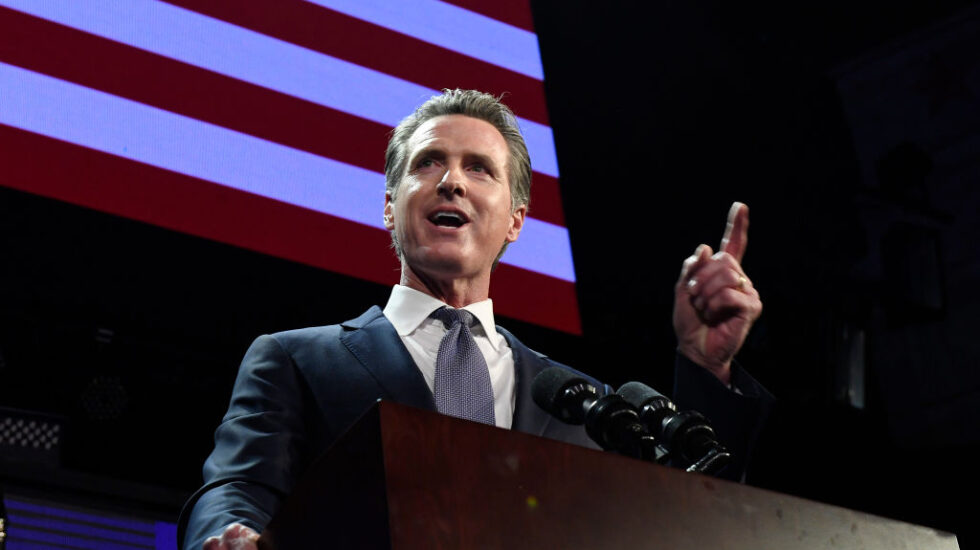Democrat Gavin Newsom will remain California’s Governor, after a recall election Tuesday failed to remove him from office.
With approximately two-thirds of ballots tallied, the “no” response to the recall question was ahead by a 30-point margin. The Associated Press called the race for Newsom at 10pm Pacific time, just an hour after polls closed. A large share of votes were cast via absentee ballot.
The recall effort was seen largely as a referendum on Newsom’s pandemic policies. His embrace of mask mandates and vaccine requirements have helped California keeps its per capita case rate low. But many Republicans were frustrated by shutdowns and they grew weary of Newsom’s willingness to force them to adopt precautions.
“‘No’ is not the only thing that was expressed tonight,” Newsom said to supporters after Tuesday’s victory.
“I want to focus on what we said ‘yes’ to as a state: We said yes to science. We said yes to vaccines. We said yes to ending this pandemic.”
Democrats outnumber Republicans by nearly a 2 to 1 margin in California, but Newsom’s political survival was far from assured. He struggled to address surging crime, endemic homelessness, and the high cost of living in the Golden State.
Last November, he was seen mask-less at a lobbyist’s birthday party at Napa Valley’s The French Laundry, one of the most expensive restaurants in the world. That lapse of judgment both defied his own mask mandate and made him appear out of touch. Polls showed the recall election was essentially a coin toss through most of the summer.
But that changed once Larry Elder, a conservative radio host, emerged as the leading GOP contender to replace Newsom. POLITICO explains:
By Labor Day, Newsom had turned what started as an up-or-down vote on his governorship into a choice between him and Elder, the radio show host Newsom relentlessly tethered to [former president Donald] Trump — with a predictable outcome in this staunchly Democratic state. For Newsom, the emergence of Elder as the GOP’s standard bearer was an unexpected gift, so beneficial to the governor that many Republicans came to resent Elder for turning the race into a traditional — and unwinnable — choice election.
Elder, who President Joe Biden called “the closest thing to a Trump clone that I’ve seen in [California]” received more votes than any other recall challenger. In the final days of his unsuccessful campaign, he had raised baseless allegations that the vote was rigged. But on Tuesday night, he changed his tune.
“Let’s be gracious in defeat. We may have lost the battle, but we are going to win the war,” he told supporters.
Caitlyn Jenner, the reality star who once appeared to be an early favorite to replace Newsom, failed to gain traction. She received the 13th most votes among the recall candidates.
The Associated Press writes that the vote of confidence in Newsom means California “will remain a laboratory for progressive policies.”
National Democrats, too, are buoyed by the win, which they see as a hopeful sign that their handling of the pandemic will be rewarded during the 2022 midterms.
The New York Times adds:
The recall does offer at least one lesson to Democrats in Washington ahead of next year’s midterm elections: The party’s pre-existing blue- and purple-state strategy of portraying Republicans as Trump-loving extremists can still prove effective with the former president out of office, at least when the strategy is executed with unrelenting discipline, an avalanche of money and an opponent who plays to type.
Newsom raised $71 million dollars for the recall campaign. He has $24 million left to spend on his 2022 re-election bid.
He is just the second governor in history to defeat a recall. In 2012, Republican Scott Walker was the first, holding onto his governorship in Wisconsin.



